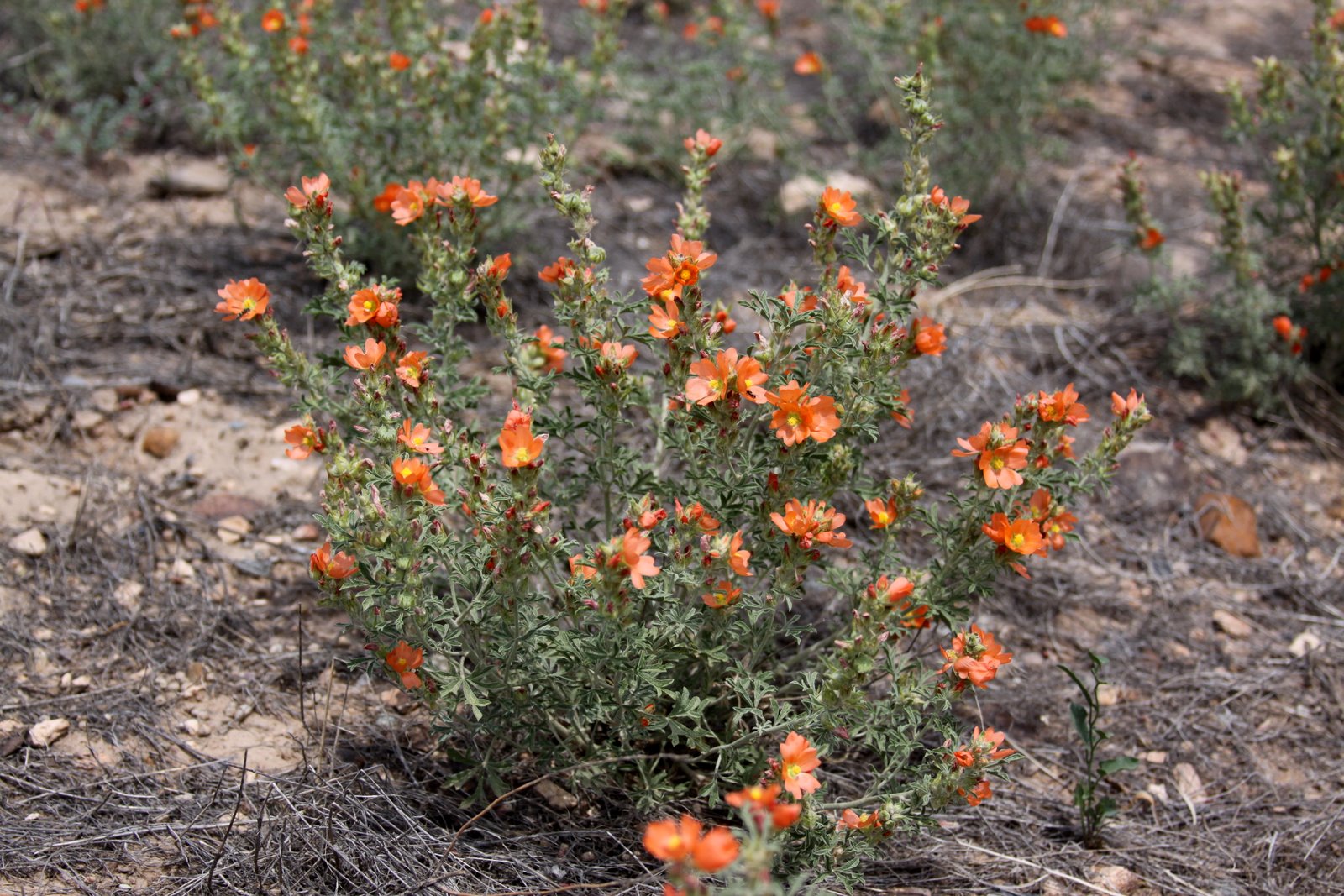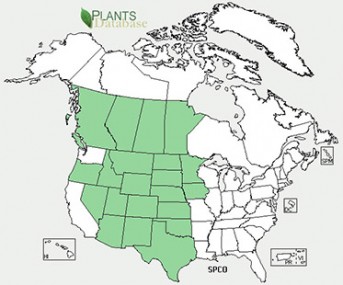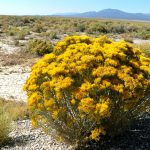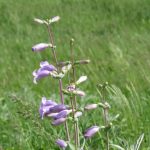Scarlet Globemallow
Sphaeralcea coccinea
Scarlet Globemallow is a low-spreading, warm season, long-lived native perennial forb to half-shrub. It provides good ground cover on disturbed sites. Although its value for erosion control is low to moderate, it is used in low rainfall area native seed mixtures on roadsides and other disturbed sites. It is most commonly found in the low rainfall areas of the Intermountain West, Great Basin, Rocky Mountains and Great Plains regions of the United States and Canada. It grows in desert, semi-desert, prairies, grasslands, scrub, pinyon-juniper, and sagebrush plant communities and often on dry roadsides, disturbed areas and dry slopes. It is adapted to a wide range of soil types from sandy to clay loams to gravelly to alkaline and moderately saline soils, but it is not generally found on sodic soils. It is extremely drought tolerant and does not tolerate shady conditions. It grows at elevations from 3,500 to 9,000 feet. Livestock commonly eat Scarlet Globemallow particularly when grasses are dormant. It provides important forage for pronghorn antelope and is rated as excellent forage for domestic sheep, deer, and bighorn sheep. Some small birds also eat Scarlet Globemallow seeds.
Lifespan: perennial
Season: warm
Uses: amnenity grassland, reclamation, CRP, pollinator, wildlife habitat, biodiversity
Native or Introduced: Native
Annual Average Precipitation: 10 inches
Field Seeding Rate (lbs/acre): 1 to 2
Turf Seeding Rate (lbs/1000 s.f.): n/a




